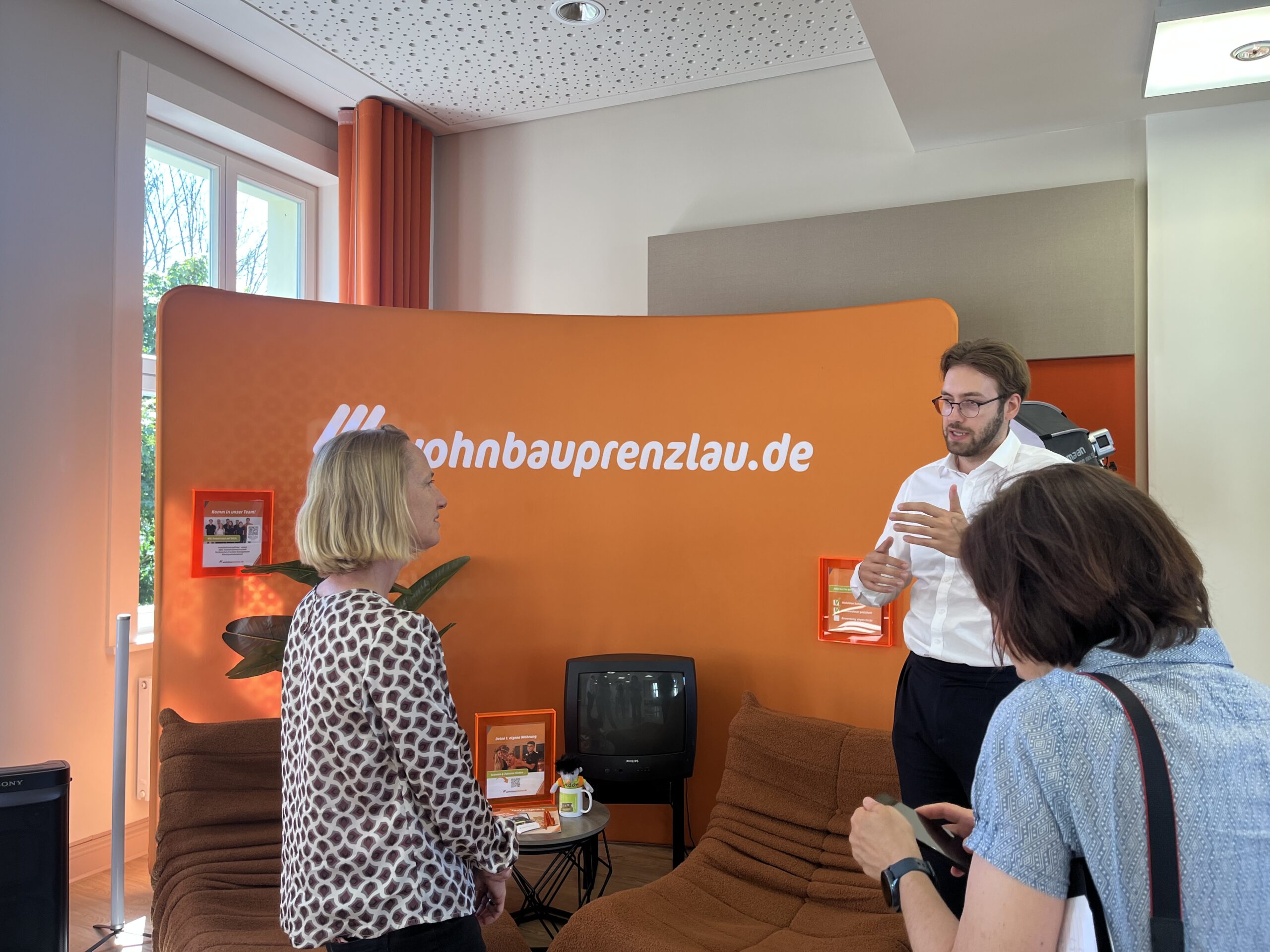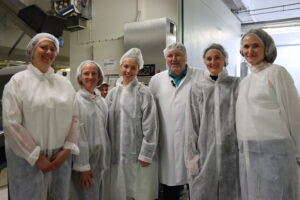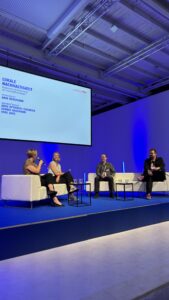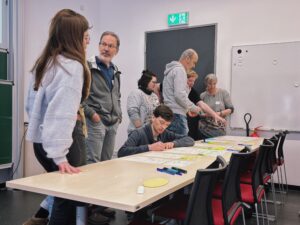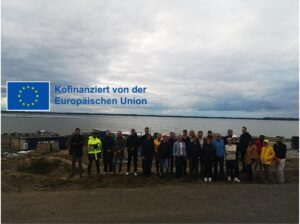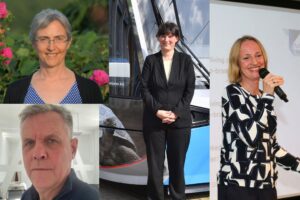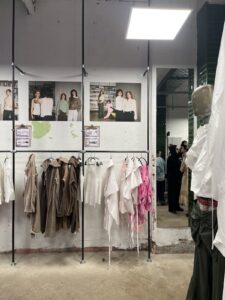Wohnbau GmbH Prenzlau has completed its first CO2e balance sheet.
This marks an important milestone, and we at The Future Living had the opportunity to accompany them throughout the process. Ivo Richter shares the challenges, surprises, and opportunities that arise in the housing sector, not only regarding reporting but also in the areas of social and structural sustainability development. This sector has its own unique characteristics. His message to other small and medium-sized enterprises is clear: Sustainability is not a passing trend, but a long-term responsibility that begins with taking the first step.
Experience with the CO2e course at The Future Living
The Future Living: How easy or difficult was it for your company to start working on a CO2e balance sheet? Were there any surprises or insights that became clear during the process?
Ivo Richter: The starting point was relatively straightforward. In the housing sector, a lot of data is already available through heat, gas, and electricity meters. This means the data quality for Scope 1 and Scope 2 emissions is good. A key insight came with the extent of Scope 3 emissions. Capturing this data involves a high level of effort, and the availability of reliable data is limited. Whether this will improve in the future remains to be seen.
The Future Living: What specific actions have you already taken to reduce the CO2e emissions of your properties or operations?
Ivo Richtier: We have already implemented a wide range of measures. By switching from gas and oil heating systems to district heating, we are saving approximately 80.5 tonnes of CO2e per year.
We are also gradually replacing gas-powered water heaters used for decentralized hot water supply with electric units. So far, around 27.5 percent have been updated. At the building located at Winterfeldtstraße 5, we carried out a full renovation that included significant energy upgrades. Further measures are already planned.
The Future Living: What would you like to say to other SMEs that are just beginning their sustainability efforts?
Ivo Richter: Sustainability will continue to play a central role in the future. It should not be dismissed as a temporary trend. To achieve climate neutrality by 2045, concrete measures and decisions need to be taken today. The challenge may seem large, but there are many support options available that are worth exploring and using.
Sustainability as a contribution to people, community, and the region
The Future Living: Sustainability goes beyond reducing greenhouse gases. What does a “sustainable neighborhood” mean to you, and how can a housing company contribute? How do you approach this?
Ivo Richter: As a municipal housing company, we see social responsibility, respect, and appreciation as key corporate values. We are actively involved in the community, for example through our annual “Igelfest”, which offers free attractions for children. We also support numerous other local events and activities.
Regional clubs receive financial support through sponsorship agreements. We offer free rentals of bouncy castles and annually recognize neighbors who go above and beyond. These are just a few examples. As you can see, the list of possibilities is extensive.
The Future Living: Your company is deeply rooted in Brandenburg. How do regional characteristics, local communities, or your connection to the region influence your sustainability decisions?
Ivo Richter: In the city of Prenzlau, there is a strong spirit of cooperation among local stakeholders. This enables joint efforts to initiate and implement improvements for the city. Currently, this is especially visible in the area of municipal heating planning, where local interests and long-term strategies align very well.
The Future Living: Your company has experienced major transformations, particularly following German reunification. How have those past experiences shaped your approach to sustainability today?
Ivo Richter: The housing industry tends to move slowly. Mistakes may not have immediate effects, but they often have long-term consequences. This has taught us to take risks such as rising CO2 prices seriously and to make strategic decisions at an early stage.
Ongoing development and knowledge exchange
The Future Living: Where do you find inspiration for further (sustainable) business development? Are there role models, networks, or projects that guide you?
Ivo Richter: As a member of the BBU and the GDW we gain a lot of valuable insights through association work. At the same time, we aim to be a pioneer ourselves. This includes digitalization, the use of artificial intelligence, and of course, sustainable development.
The Future Living: From your perspective as an SME in the housing sector in Brandenburg, what aspects would you like to see more strongly represented in the national discussion on sustainability and housing policy?
Ivo Richter: The housing sector would like to see more transparency and reliability from policymakers.
The Climate Protection Act provides a legal framework, even anchored in the constitution. However, it is rarely acknowledged that climate protection also comes with financial costs. In addition, rural areas and their specific needs are often overlooked in large-scale planning.
The Future Living: Imagine it’s the year 2035. What would you like to look back on and say with a smile: “I’m glad we stuck with it”?
Ivo Richter: By 2035, many of the planned measures should be in place, and our dependence on gas significantly reduced. If the CO2 price ends up being as high as predicted, I’ll be glad we pushed this transformation forward.
